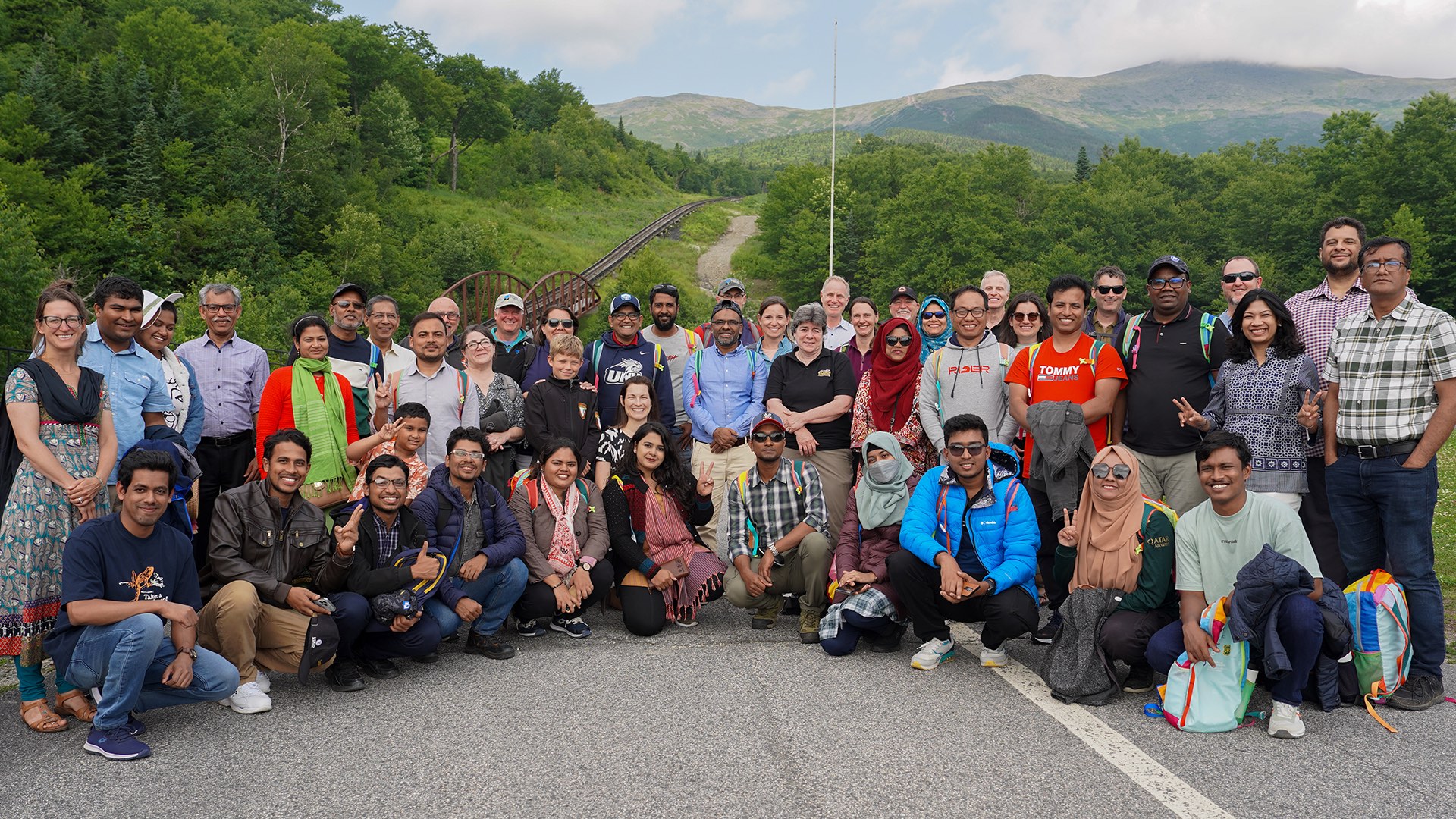
3 minute read
Advancing KNOWLEDGE through PARTNERSHIPS
Collaborations in Puerto Rico, Bangladesh support research and education
Change doesn’t occur in a vacuum. It often requires building partnerships, sharing ideas and even crossing borders. This understanding fuels many collaborations at the college, including two current projects with partners in Puerto Rico and Bangladesh.
COLSA has long had a research presence in Puerto Rico, and research and academic opportunities for the college continue to flourish there.
“If you look at the challenges that both Puerto Rico and New Hampshire face, there are a phenomenal number of parallels,” says Anthony S. Davis, dean of COLSA. “So, building upon long-standing collaborative partnerships with our colleagues in Puerto Rico just makes sense.”
Davis explains that Puerto Rico offers new ways of looking at solutions to complex problems like local food production, drought and water availability, and workforce development.
Beginning in 1982, Professor Emeritus Bill McDowell joined other scientists from around the globe and took the lead in establishing the world’s longest-running tropical stream chemistry research program, focused on the watersheds of the Luquillo Mountains in northeastern Puerto Rico. Over the years, dozens of COLSA researchers have traveled to the island to contribute to this research. More recently, Research Assistant Professor Adam Wymore joined McDowell in studying this unique site.
This past summer, COLSA’s connection to Puerto Rico expanded with the arrival of two students from the University of Puerto Rico at Mayagüez (UPR-M). Eliudes S. Camps Marcano, a horticulture student, conducted research led by COLSA agricultural scientists Chris Hernandez, assistant professor, and Anna Wallingford, research assistant professor. Giovanni Quiñones, a marine biology major, worked in associate professor Gregg Moore’s Coastal Restoration and Resiliency Lab.
At the same time, Ethan Powell ’24, an environmental sciences: ecosystems major, spent the summer in Puerto Rico, participating in a groundbreaking rainforest warming experiment in the Luquillo Experimental Forest led by U.S. Forest Service scientists.
Some 7,000 miles away, new collaborations are connecting COLSA to one of the most populated countries in the world: Bangladesh. This tropical nation has grappled with deforestation and resource management and, more recently, the devastating impacts of climate change. In the past couple of decades, there’s been a greater focus on sustainable forestry practices and education.
This past summer, Bangladeshi forestry students, faculty and researchers, government officials and NGO workers arrived in Durham to share practices and knowledge. The visit was part of an ongoing student and fellowship exchange organized by COLSA and Community Partnerships to Strengthen Sustainable Development, a project led by the U.S. Forest Service International Programs Office and funded by the U.S. Agency for International Development (USAID) Bangladesh.
A group of COLSA graduate students and faculty will complete a study tour of Bangladesh in early 2024.
“With these collaborations, we’re better connecting our faculty to places where they can contribute the most,” says Davis. “We do research where the research is needed, building lasting partnerships, and through this we can help advance teaching and service in areas of greatest need.”










